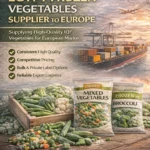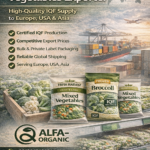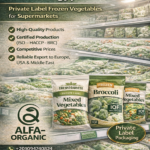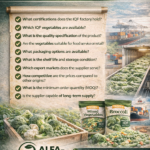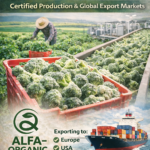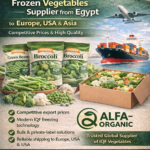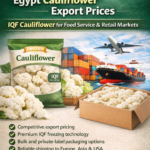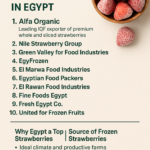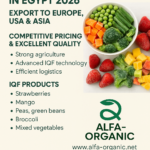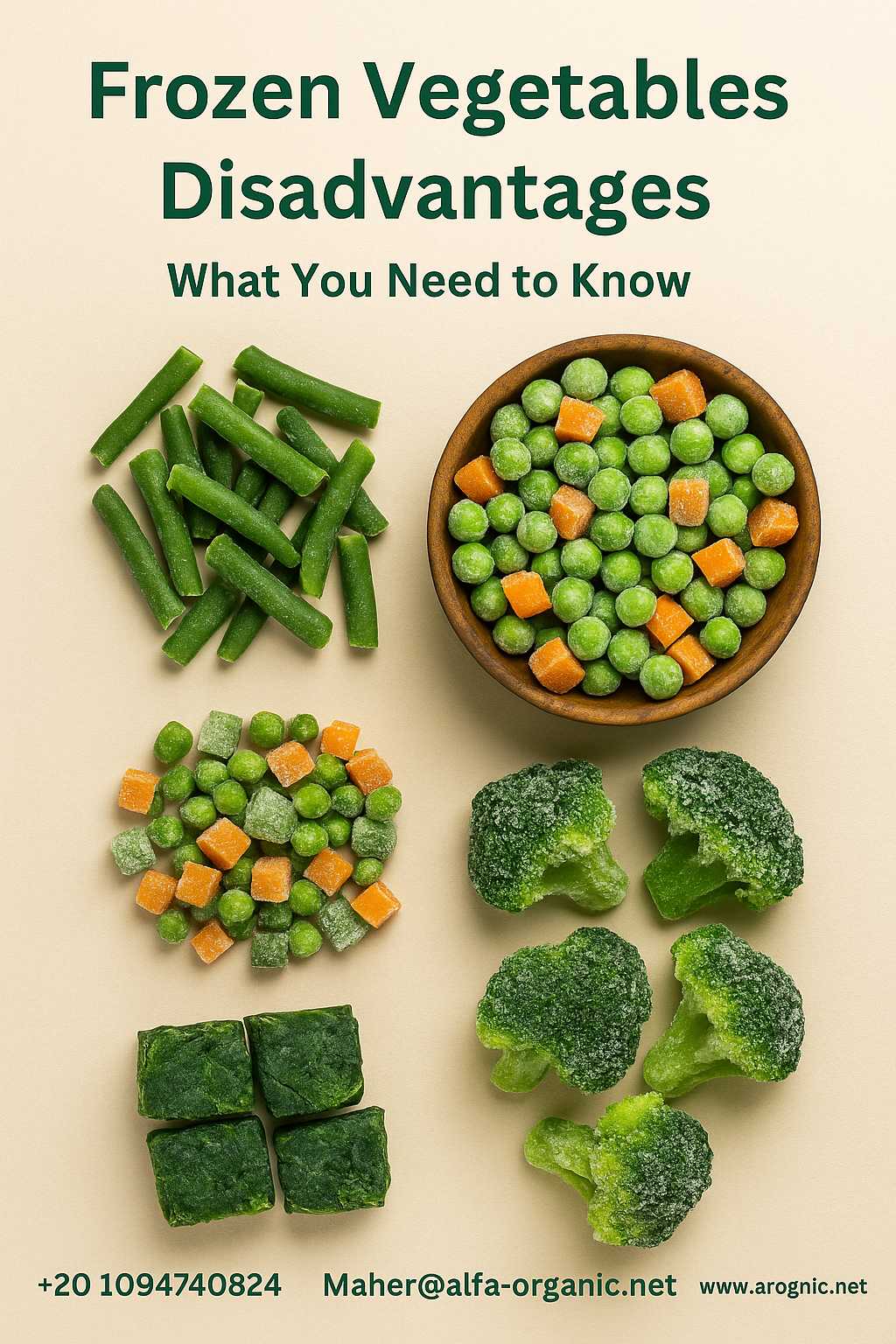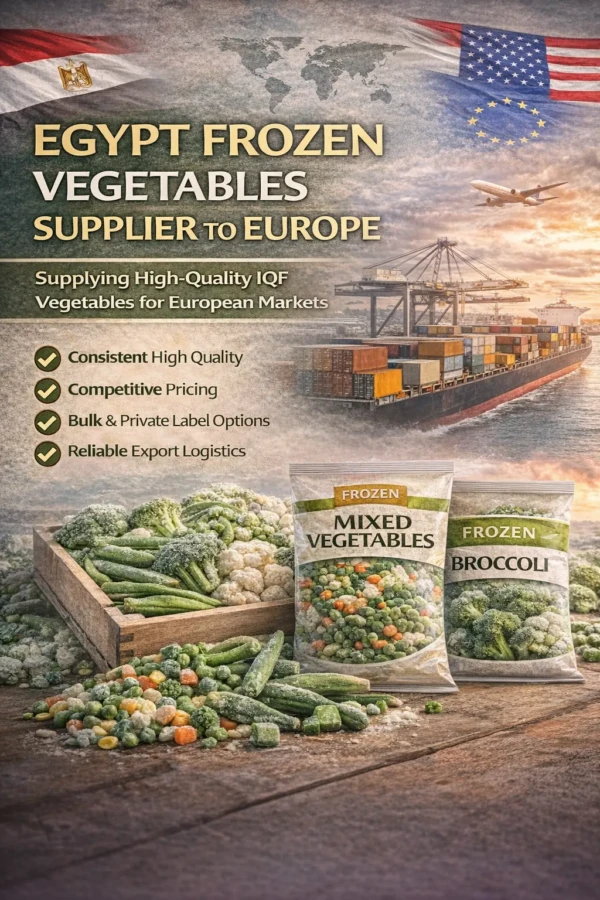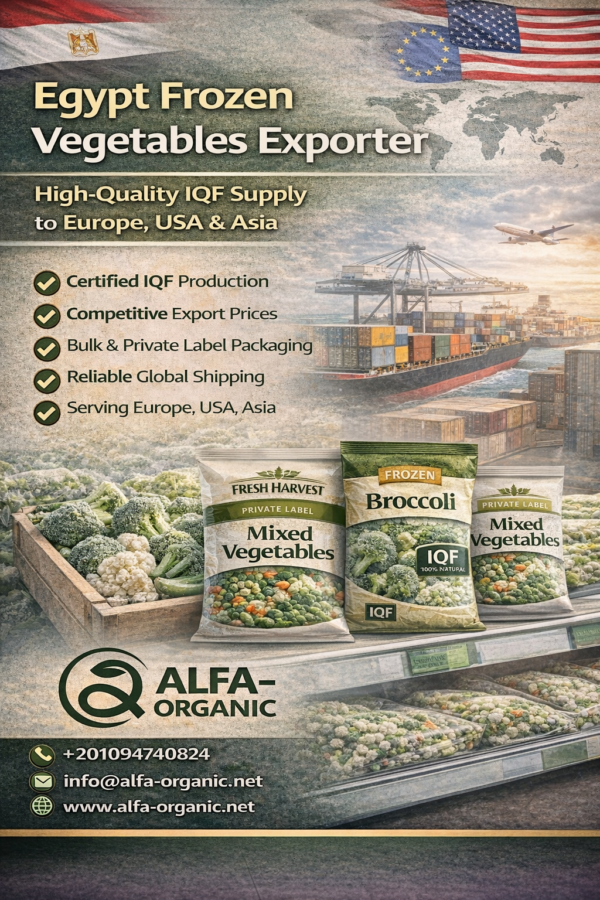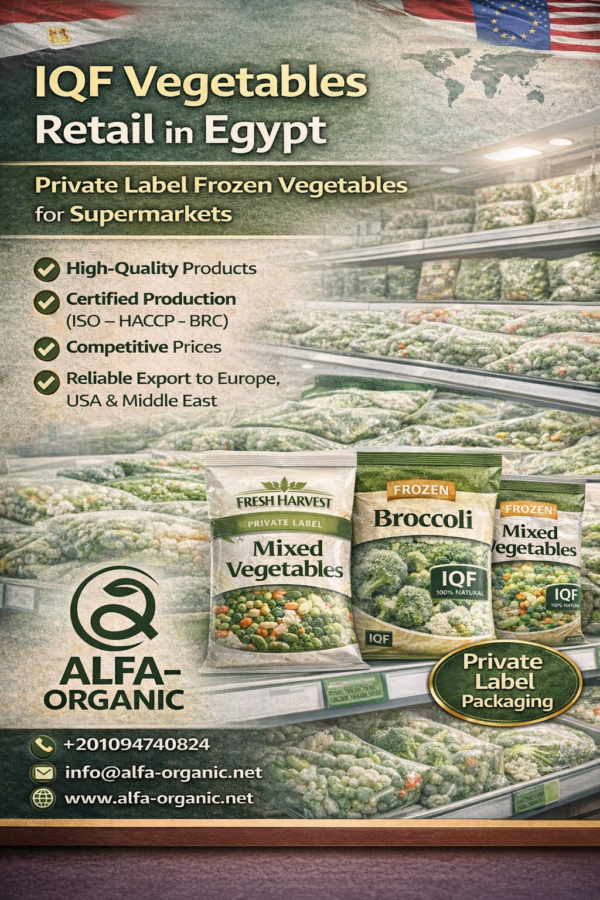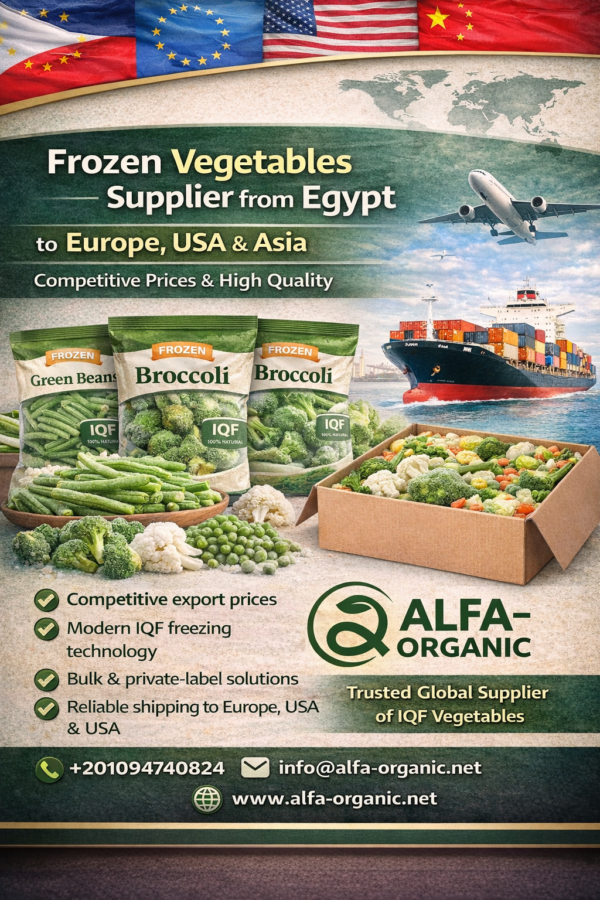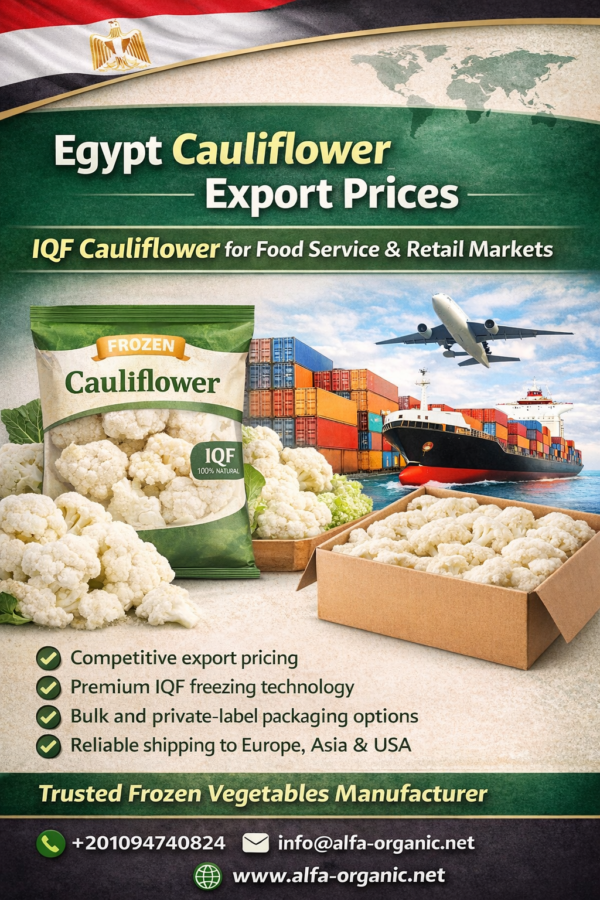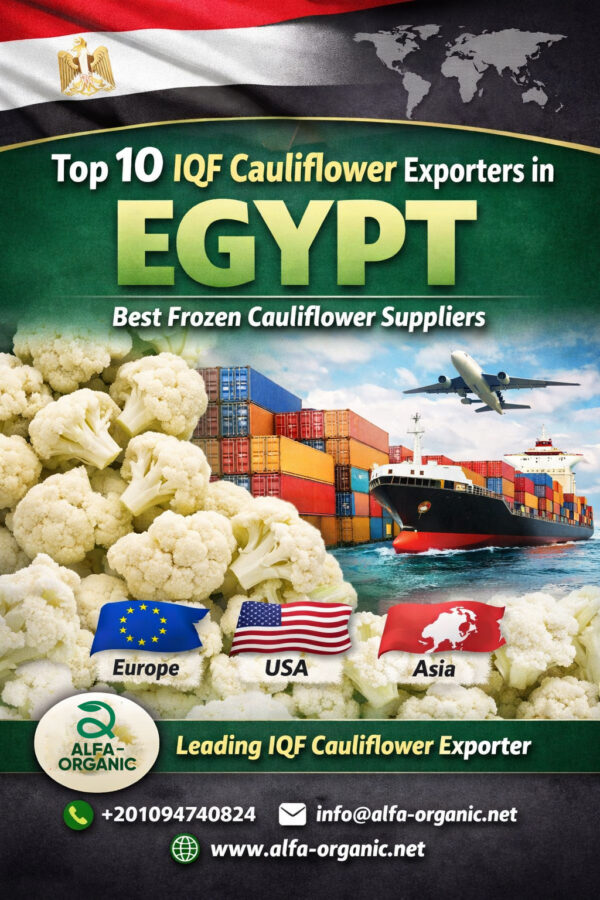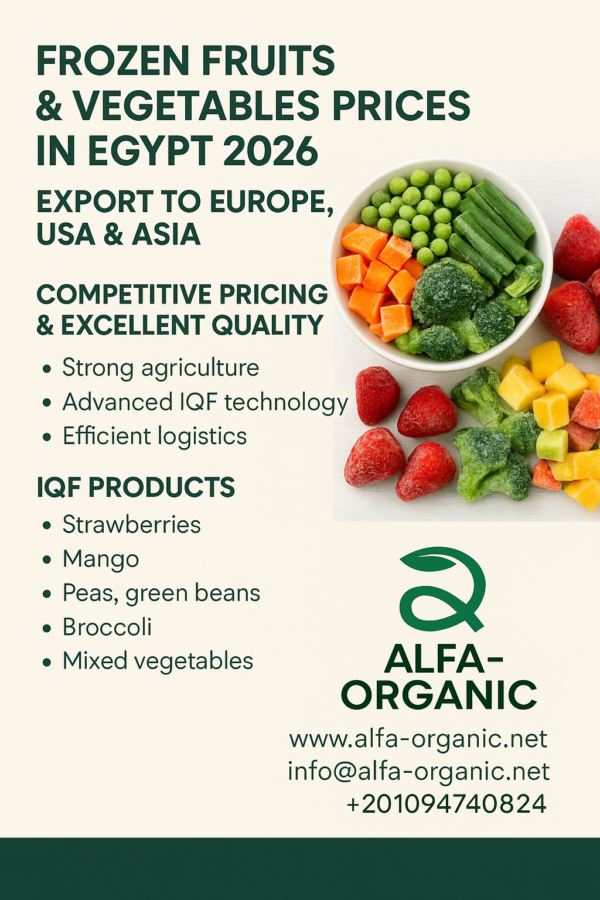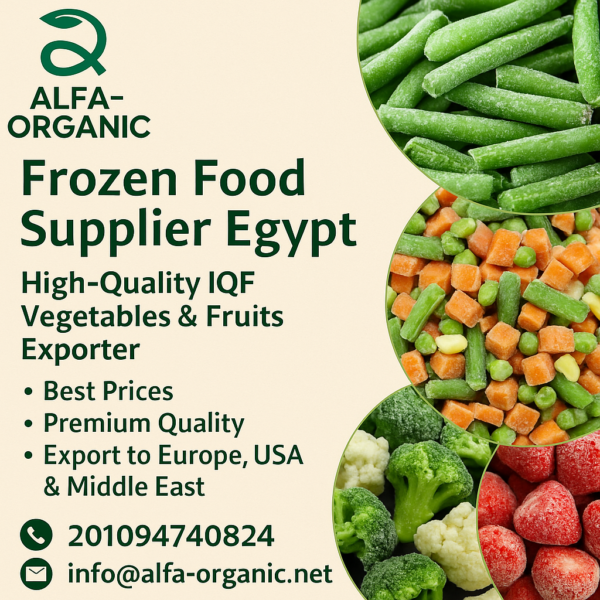🥦 Frozen Vegetables Advantages and Disadvantages | Complete Guide to Benefits, Drawbacks & IQF
The global demand for frozen fruits and vegetables is growing rapidly. Consumers want convenience and nutrition, while businesses seek consistent supply chains and long shelf life. But many still ask: are frozen vegetables healthy? What are the frozen vegetables advantages and disadvantages? This complete guide explores the benefits of frozen vegetables, their drawbacks, and how businesses and consumers can make the best choices when it comes to frozen produce.
1. Are Frozen Vegetables Healthy?
The short answer is yes, frozen vegetables are healthy. In fact, studies show that the nutritional value of frozen vegetables often matches or even surpasses fresh produce. Because frozen products are usually processed right after harvest, they lock in vitamins and minerals.
-
Frozen vegetables nutrition facts reveal that Vitamin C, Vitamin A, and fiber levels remain high even after months of storage.
-
IQF (Individually Quick Frozen) technology ensures that nutrients are preserved without heavy processing.
-
For consumers, this means frozen vegetables advantages like affordable access to seasonal crops year-round.
However, some minor drawbacks of frozen vegetables exist. For example, water-soluble vitamins may slightly decrease during blanching. Still, the overall benefits of frozen vegetables outweigh these concerns.
2. Benefits of Frozen Vegetables
The advantages of frozen vegetables extend far beyond convenience.
For Consumers
-
Frozen vegetables for consumers provide quick cooking options for busy families.
-
Affordable pricing, especially in the category of cheap frozen vegetables, makes them accessible to all.
-
Less food waste, since frozen produce lasts months instead of days.
For Businesses
-
Frozen vegetables for businesses ensure stable year-round supply chains.
-
Easy transportation and storage make them ideal for hotels, restaurants, and catering.
-
Premium frozen vegetables advantages include higher quality, consistent size, and compliance with global safety standards.
Key Highlight
-
IQF frozen vegetables benefits include individual quick freezing, which avoids clumping and maintains natural flavor.
3. Disadvantages and Drawbacks of Frozen Vegetables
Although popular, frozen vegetables are not without limitations.
-
Frozen vegetables disadvantages may include texture changes once thawed.
-
Frozen vegetables storage issues can occur if the cold chain is broken, leading to loss of quality.
-
Cheap frozen vegetables disadvantages often come from suppliers who cut corners, leading to poor taste or low nutrition.
-
Even high quality frozen vegetables pros and cons exist: while premium products ensure excellent quality, they may cost slightly more.
These drawbacks of frozen vegetables highlight the importance of choosing reliable suppliers.
4. Frozen Vegetables Pros and Cons by Product
Frozen Beans Benefits and Disadvantages
-
Frozen beans benefits and disadvantages show that beans keep their fiber and protein well.
-
Disadvantage: sometimes the texture becomes softer than fresh beans.
Frozen Broccoli Advantages and Disadvantages
-
Frozen broccoli advantages and disadvantages include strong Vitamin C retention and anti-cancer compounds like sulforaphane.
-
Downsides: broccoli can lose crunchiness after long storage.
Frozen Cauliflower Pros and Cons
-
Frozen cauliflower pros and cons show high Vitamin K and fiber levels.
-
But similar to broccoli, texture may be less crisp when thawed.
In summary, the frozen vegetables pros and cons vary slightly by product, but overall, frozen options remain highly nutritious.
5. Frozen Fruits and Vegetables Guide
Consumers and businesses need a proper frozen fruits and vegetables guide to make smart decisions.
For Consumers
-
Check labels for country of origin.
-
Avoid products with added sauces or preservatives.
-
Store them at consistent freezing temperatures to avoid frozen vegetables storage issues.
For Businesses
-
Choose IQF suppliers to ensure high quality frozen vegetables pros and cons favor the advantages.
-
Bulk orders reduce cost and maintain stock stability.
-
Reliable storage facilities are key to preserving nutritional value.
6. IQF Frozen Vegetables Benefits
IQF stands for Individually Quick Frozen, a technology that freezes each piece separately. This process has several advantages:
-
Maintains the nutritional value of frozen vegetables.
-
Prevents clumping, allowing easy portioning.
-
Extends shelf life while preserving natural color and taste.
-
Offers major IQF frozen vegetables benefits for both exporters and importers.
For businesses involved in export, the premium frozen vegetables advantages of IQF ensure compliance with EU and global standards.
7. Frozen Vegetables for Businesses vs Consumers
Frozen Vegetables for Consumers
-
Year-round availability of seasonal crops.
-
Access to cheap frozen vegetables without worrying about spoilage.
-
Convenient cooking and reduced preparation time.
Frozen Vegetables for Businesses
-
Stable contracts and supply chains.
-
Consistent quality thanks to high quality frozen vegetables pros and cons leaning towards benefits.
-
Export opportunities for regions with high demand for premium frozen vegetables advantages.
The frozen vegetables advantages and disadvantages differ depending on perspective, but both consumers and businesses gain significant benefits.
8. Frozen Vegetables Nutrition Facts
Let’s explore the nutritional value of frozen vegetables in detail:
-
Broccoli: High in Vitamin C, folate, and antioxidants.
-
Cauliflower: Excellent source of Vitamin K and fiber.
-
Beans: Protein and iron, ideal for vegetarians.
-
Strawberries and Mango: Retain Vitamin A, C, and antioxidants even when frozen.
These frozen vegetables nutrition facts prove that freezing is one of the best preservation methods available today.
9. Frozen Vegetables Pros and Cons – Final Analysis
When weighing frozen vegetables advantages and disadvantages, the scale tips strongly toward benefits.
-
Pros: Nutrition retention, cost savings, convenience, year-round availability, reduced waste.
-
Cons: Minor texture changes, possible storage issues, and lower quality in very cheap products.
For both frozen vegetables for businesses and frozen vegetables for consumers, the positives clearly outweigh the negatives.
Conclusion
Frozen fruits and vegetables are more than just a convenient option – they are a strategic solution for global food security. By understanding the frozen vegetables pros and cons, buyers can make smarter choices. Whether it’s frozen broccoli advantages and disadvantages, frozen cauliflower pros and cons, or frozen beans benefits and disadvantages, one thing is clear: IQF and premium products deliver superior value.
Contact Alfa – Get a Quote
Looking for a reliable partner in frozen food? Contact us today for quotations on bulk orders of frozen fruits and vegetables.
📞 Phone / WhatsApp: +20 1094740824
📩 Email: Maher@alfa-organic.net
🌐 Website: https://alfa-organic.net/

